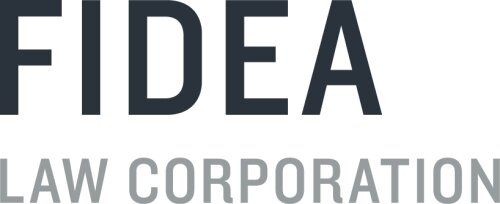Best Communications & Media Law Lawyers in California
Share your needs with us, get contacted by law firms.
Free. Takes 2 min.
Or refine your search by selecting a city:
List of the best lawyers in California, United States
About Communications & Media Law in California, United States
Communications and Media Law in California covers the legal rules and regulations that affect how individuals, businesses, and organizations communicate and distribute information to the public. This area of law addresses a variety of issues, including freedom of speech and expression, broadcast and digital media regulations, intellectual property, defamation, privacy rights, advertising standards, and access to information. Because California is home to Silicon Valley, Hollywood, and a diverse media landscape, the state's laws in this sector are particularly influential and often intersect with federal law and emerging technologies.
Why You May Need a Lawyer
There are many situations in which you may need the guidance of a Communications and Media Law attorney in California. Some common scenarios include:
- Facing or considering a defamation, libel, or slander claim regarding published content.
- Dealing with copyright or trademark infringement issues for digital content, films, music, or software.
- Navigating advertising law and commercial speech regulations, especially in digital marketing campaigns.
- Responding to a request to remove content online under copyright (DMCA) or privacy laws.
- Ensuring compliance with state and federal broadcasting rules if you are operating a radio, TV, or streaming service.
- Drafting or reviewing contracts for talent, production, or content distribution deals.
- Managing privacy law compliance, including California Consumer Privacy Act (CCPA) obligations for websites, apps, or media services.
- Representing journalists, bloggers, or news organizations facing subpoenas or access issues.
- Addressing unfair competition or trade secret disputes in media or tech ventures.
- Negotiating licensing agreements or resolving disputes over creative works.
Local Laws Overview
While federal law sets the broad framework for Communications and Media Law, California has several statutes and legal principles that are especially significant:
- Anti-SLAPP Laws: California's Anti-SLAPP statute protects individuals against lawsuits that aim to chill free speech related to public issues.
- Defamation Law: California recognizes both libel (written defamation) and slander (spoken defamation), balancing reputational harm with robust protections for free speech under the California Constitution, which is sometimes broader than the First Amendment.
- California Consumer Privacy Act (CCPA): The CCPA and its updates grant consumers rights over their personal information, affecting how media and tech companies gather and use user data.
- Right of Publicity: California law provides strong protection against unauthorised use of an individual's name, image, or likeness, even extending beyond death in certain cases.
- Recording Conversations: California is a two-party consent state for recording confidential communications, meaning all parties must agree to the recording.
- Access to Public Records: The California Public Records Act gives the public broad rights to access information held by state and local government agencies.
- Online Harassment and Cyberbullying: The state has statutes addressing online threats, stalking, and harassment, especially as they relate to social media and digital platforms.
Frequently Asked Questions
What is considered defamation in California?
Defamation is a false statement made to a third party that damages someone's reputation. In California, defamation includes both libel (written or published statements) and slander (spoken statements). Truth is a defense, and certain opinions or statements made during official proceedings may be privileged.
How does the California Consumer Privacy Act affect media companies?
The CCPA gives consumers more control over their personal data. Media companies collecting, processing, or selling Californians' personal information must provide disclosure, allow opt-outs, and honor deletion requests, among other requirements.
Can I record a phone conversation in California?
California requires the consent of all parties before recording any confidential communication, including telephone calls. Recording without consent could lead to criminal and civil liability.
What are Anti-SLAPP protections?
Anti-SLAPP laws prevent people from using the courts to intimidate others from exercising their rights to free speech or petition on matters of public interest. If a lawsuit is deemed a SLAPP, it can be dismissed early and the defendant may recover attorney fees.
Is copyright registration required to protect my work?
Copyright arises automatically when an original work is created and fixed in a tangible form. However, registering with the U.S. Copyright Office provides legal benefits, especially if you need to enforce your rights in court.
Do I need permission to use another person's image or likeness?
Yes. California's right of publicity law protects individuals' names, images, and voices from unauthorized commercial use. This right can even extend after a person's death under state law.
Can news organizations publish confidential government information in California?
The First Amendment and California law provide fairly broad protection for publishing matters of public interest, but certain government information, such as classified materials or privileged data, may still have restrictions. Legal advice is highly recommended before publication.
What are the penalties for false advertising in California?
Violating California's false advertising laws can result in civil penalties, injunctions, and consumer restitution. The laws prohibit misleading statements or omissions in advertising to the public.
How are online harassment and cyberbullying addressed in California?
California criminalizes certain forms of online harassment, including cyberstalking and making credible threats via digital platforms. Civil remedies may also be available for victims.
Who can access public records under California law?
The California Public Records Act gives every person the right to inspect and obtain copies of public records from state and local agencies, with some exceptions for privacy or law enforcement needs.
Additional Resources
Those seeking more information or official guidance on Communications and Media Law in California can consult:
- California Department of Justice - Consumer Protection Division
- California Attorney General's Office - CCPA guidance
- Federal Communications Commission (FCC) - media and communications regulations and complaints
- Reporters Committee for Freedom of the Press
- State Bar of California - Lawyer referral services
- Electronic Frontier Foundation (EFF) - digital civil liberties and privacy issues
- California Office of the Attorney General - Public Records Act information
- Local legal aid societies for free or low-cost counseling
Next Steps
If you need legal assistance regarding Communications and Media Law in California, consider the following steps:
- Assess your situation and gather all related documents or communications.
- Consult legal resources or guides from reputable organizations for basic information.
- Contact a licensed California attorney who specializes in Communications and Media Law. The State Bar of California offers lawyer referral services to connect you with qualified lawyers in your area.
- If urgent, protect evidence by saving emails, posts, or recordings, and avoid public disclosure until you get legal advice.
- For disputes involving intellectual property or free speech, prompt legal guidance is essential due to strict filing deadlines and complex defenses.
- In cases involving criminal allegations like harassment, contact the authorities as well as an attorney immediately.
Every situation is unique, and timely, informed legal counsel can make a significant difference in protecting your rights and interests in California's dynamic communications and media environment.
Lawzana helps you find the best lawyers and law firms in California through a curated and pre-screened list of qualified legal professionals. Our platform offers rankings and detailed profiles of attorneys and law firms, allowing you to compare based on practice areas, including Communications & Media Law, experience, and client feedback.
Each profile includes a description of the firm's areas of practice, client reviews, team members and partners, year of establishment, spoken languages, office locations, contact information, social media presence, and any published articles or resources. Most firms on our platform speak English and are experienced in both local and international legal matters.
Get a quote from top-rated law firms in California, United States — quickly, securely, and without unnecessary hassle.
Disclaimer:
The information provided on this page is for general informational purposes only and does not constitute legal advice. While we strive to ensure the accuracy and relevance of the content, legal information may change over time, and interpretations of the law can vary. You should always consult with a qualified legal professional for advice specific to your situation.
We disclaim all liability for actions taken or not taken based on the content of this page. If you believe any information is incorrect or outdated, please contact us, and we will review and update it where appropriate.
Browse communications & media law law firms by city in California
Refine your search by selecting a city.














